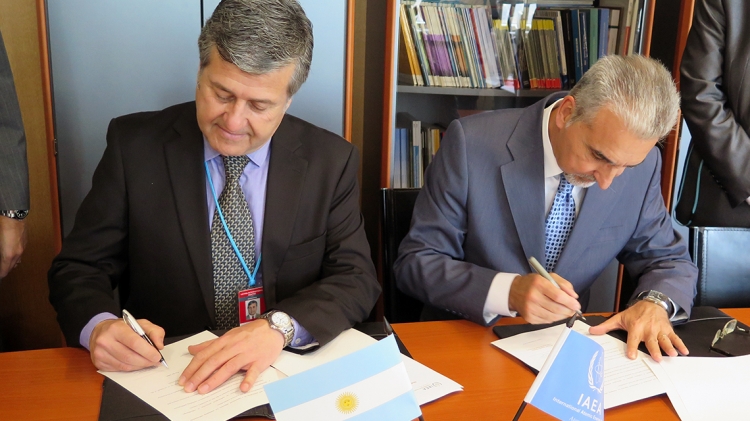
Juan Carlos Lentijo, IAEA Deputy Director General and Head of the Department of Nuclear Safety and Security, and Ruth E. McBurney, Executive Director of United States Conference of Radiation Control Programs Directors, sign the Practical Arrangements at the IAEA headquarters in Vienna. (Photo: R. Diaz Francia/IAEA)
The IAEA also signed Practical Arrangements with the Conference of Radiation Programme Control Directors (CRCPD), a non-profit non-governmental organization in the United States dedicated to radiation protection.
This agreement covers radiation protection in medicine, especially where new radiation source technologies are used and underlines the need to ensure that any use of radiation is fully justified, to ensure adequate protection of workers and patients.
Other areas of collaboration include control of radiation exposure of workers and the public from naturally occurring radioactive material (NORM) in mining and other industries and the reduction of radon levels in homes, which is for most people the largest contributor to their radiation exposure.
The cooperation between the CRCPD and the IAEA will boost the sharing of experience and knowledge in relation to these issues.
"We need to be vigilant to make sure that national rules, regulations, policies and procedures are resilient and effectively implemented for radiation protection and safety," said Ruth E. McBurney, Executive Director of the CRCPD. "We look forward to the close interaction with the IAEA in achieving shared objectives."
This Practical Arrangements signed on 30 September is valid for a three-year period.






